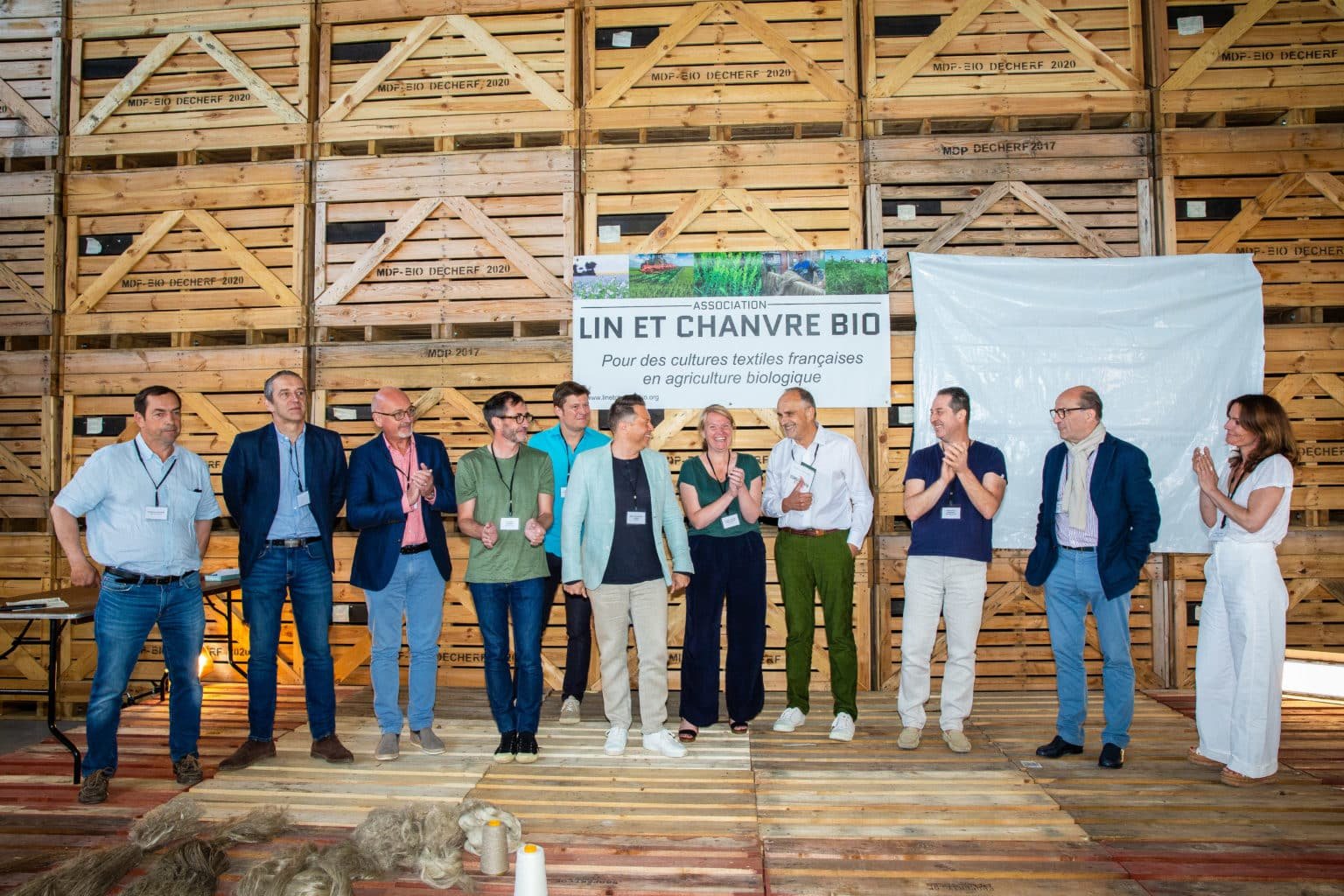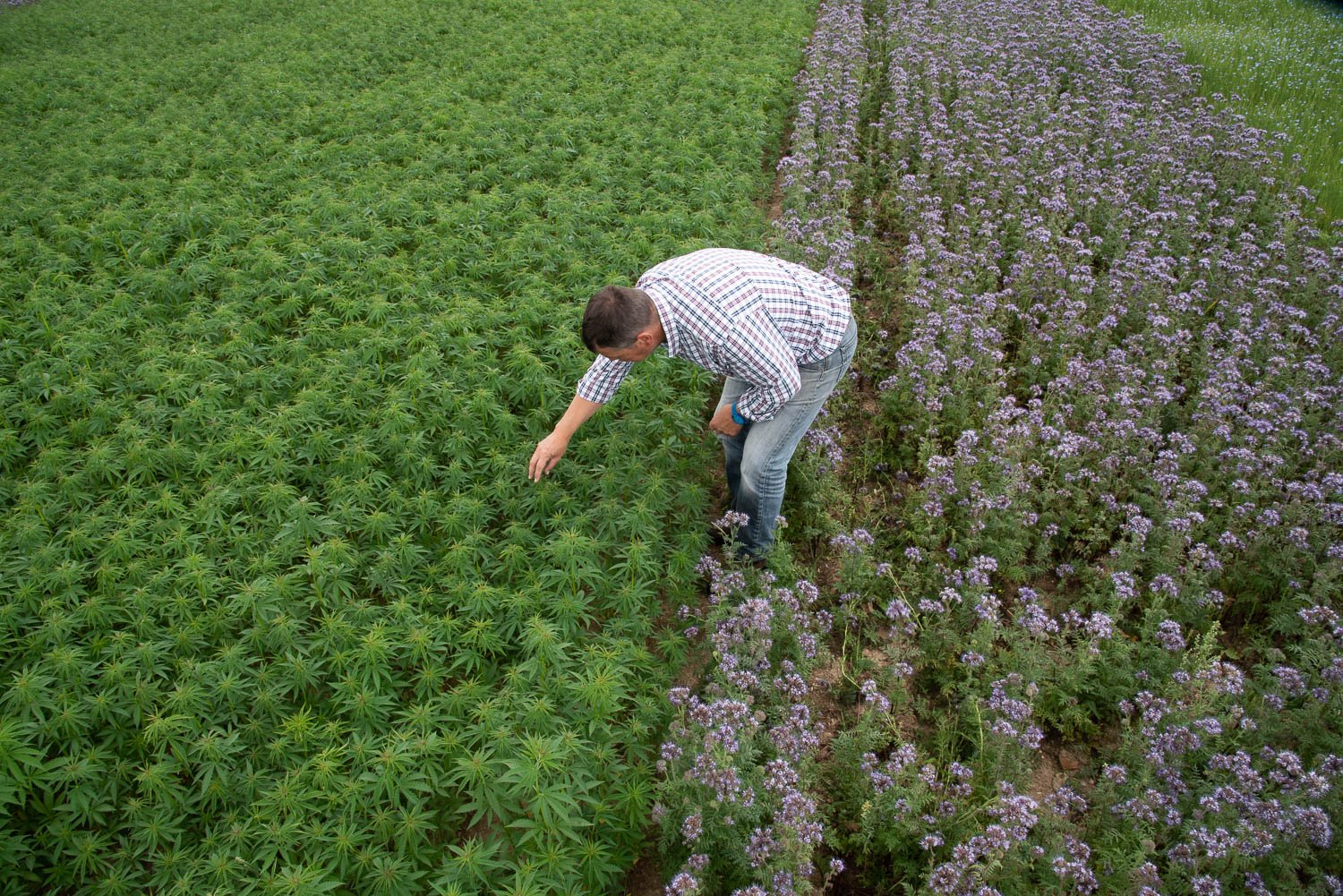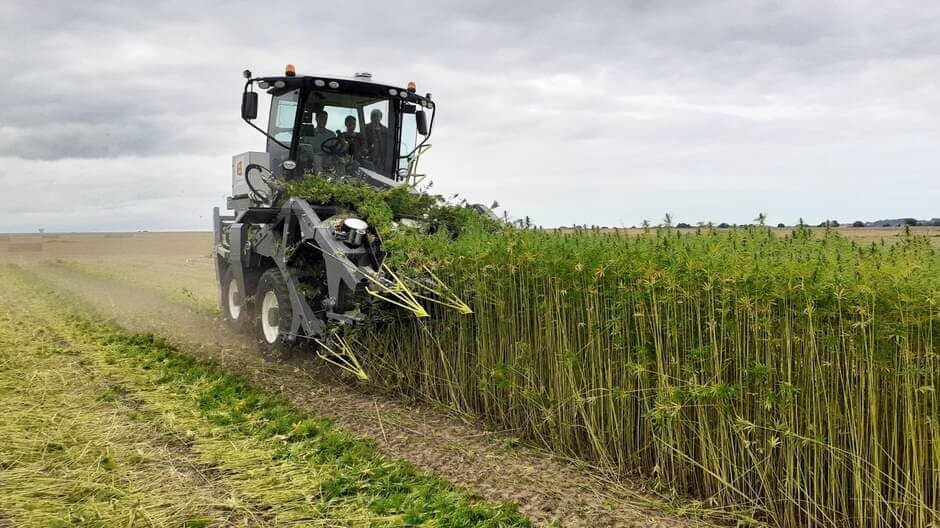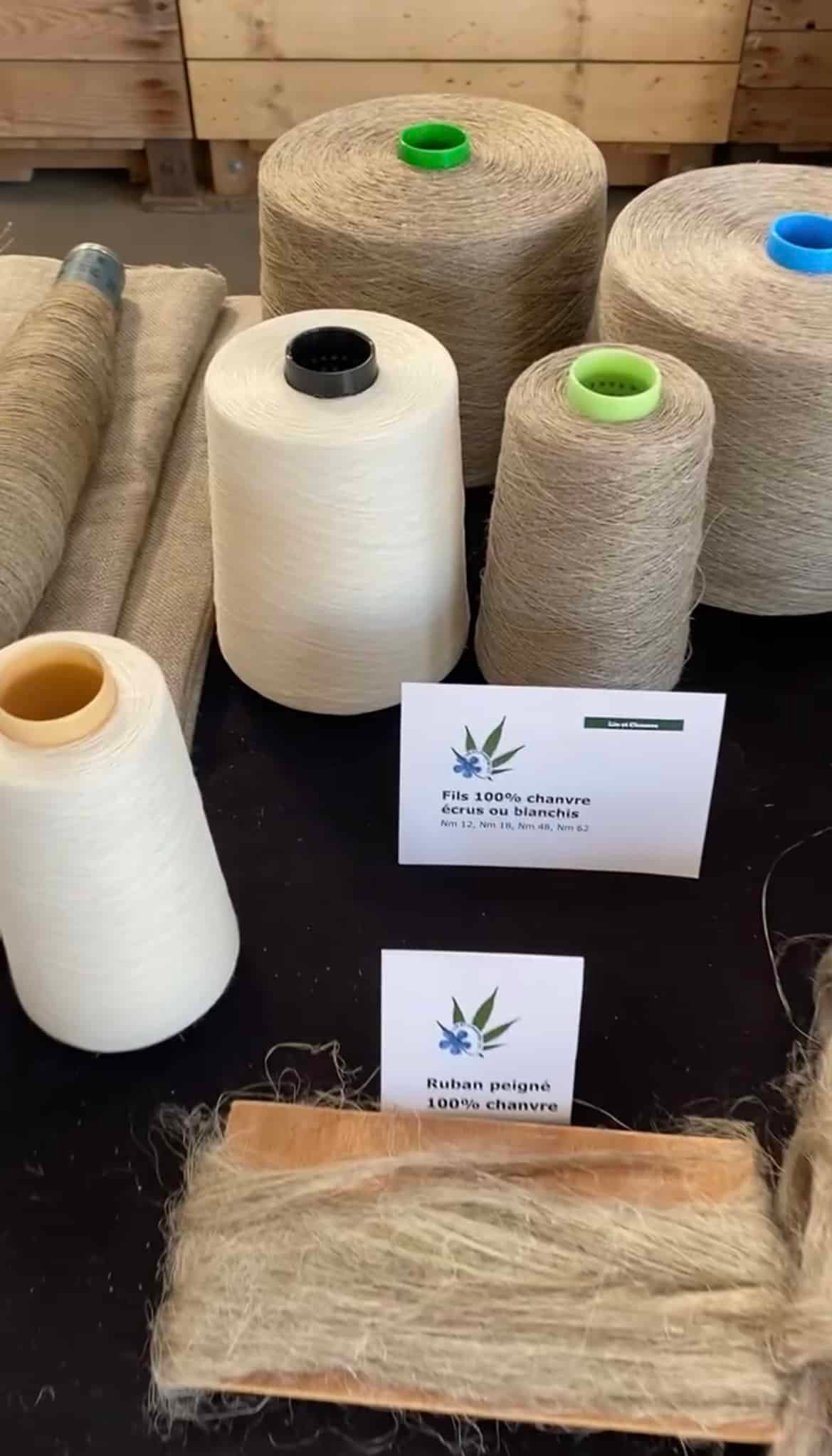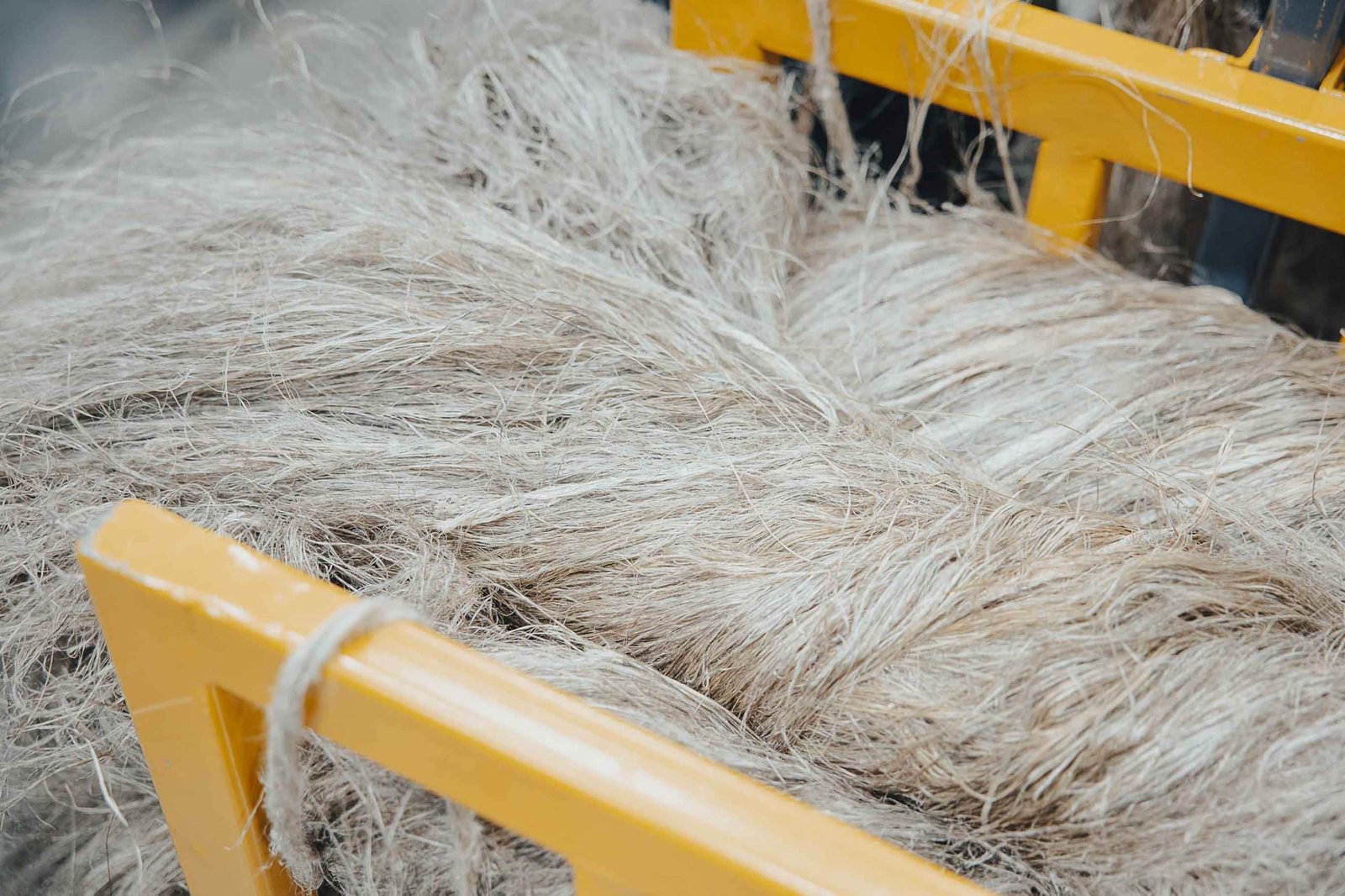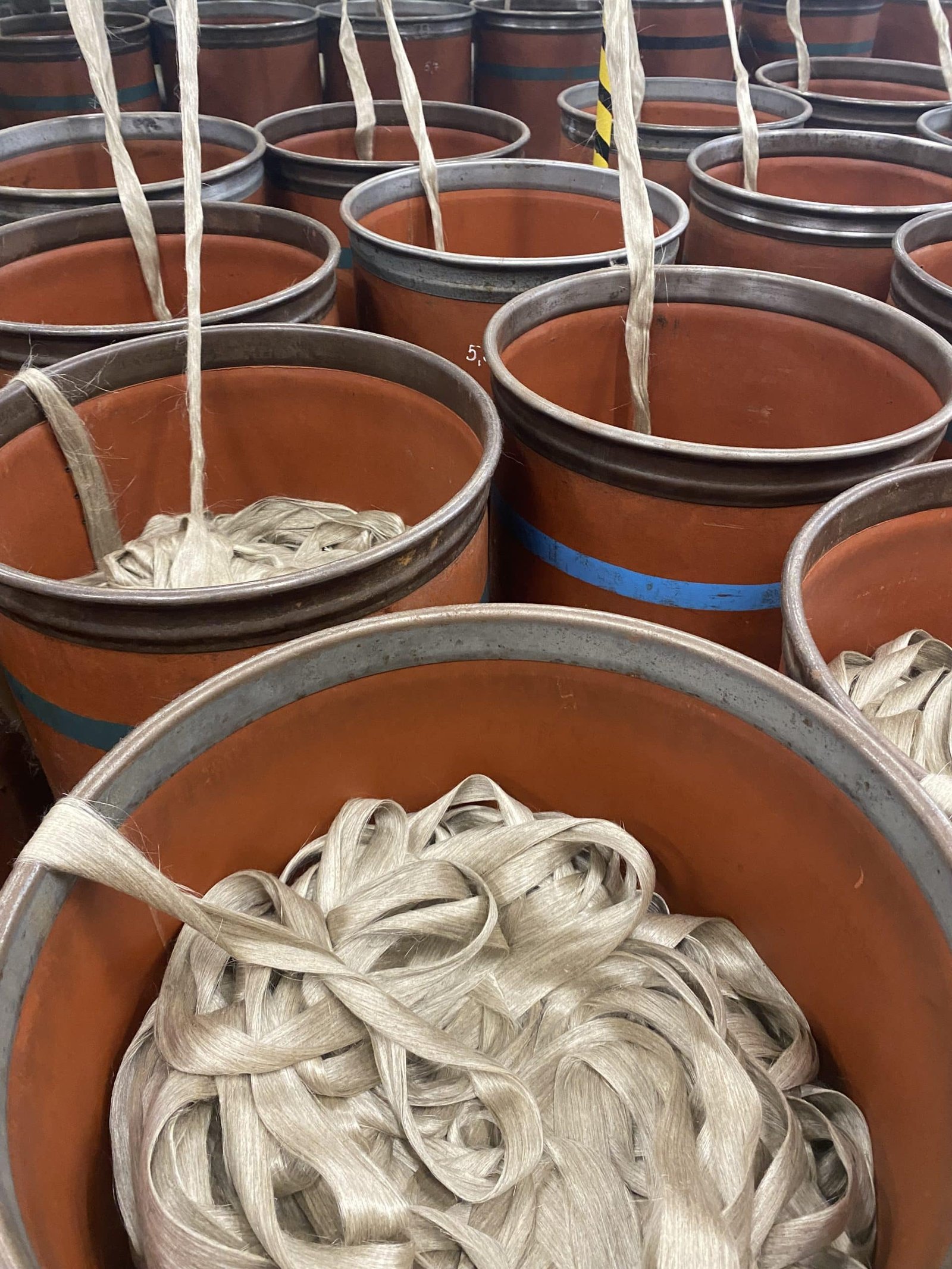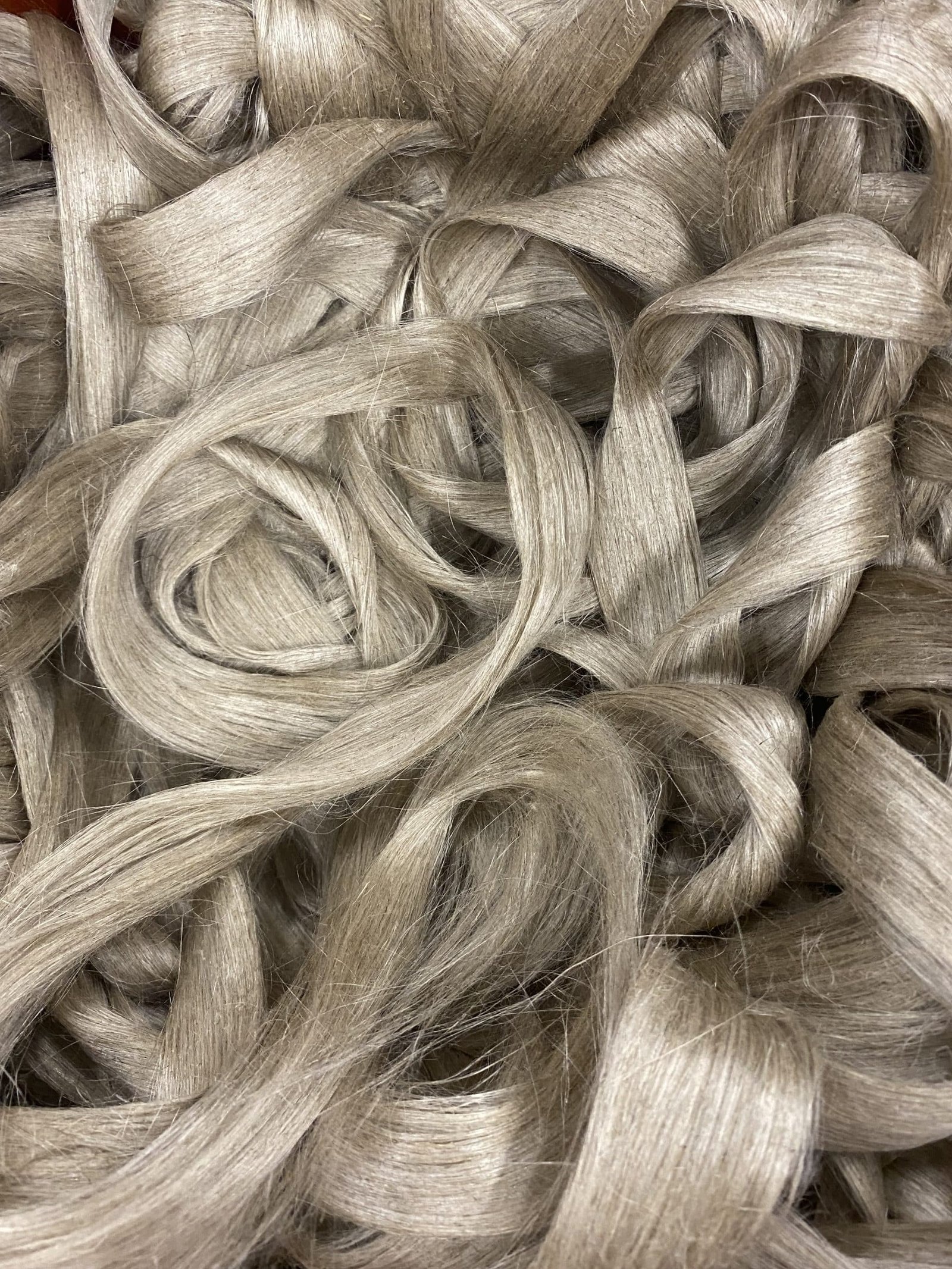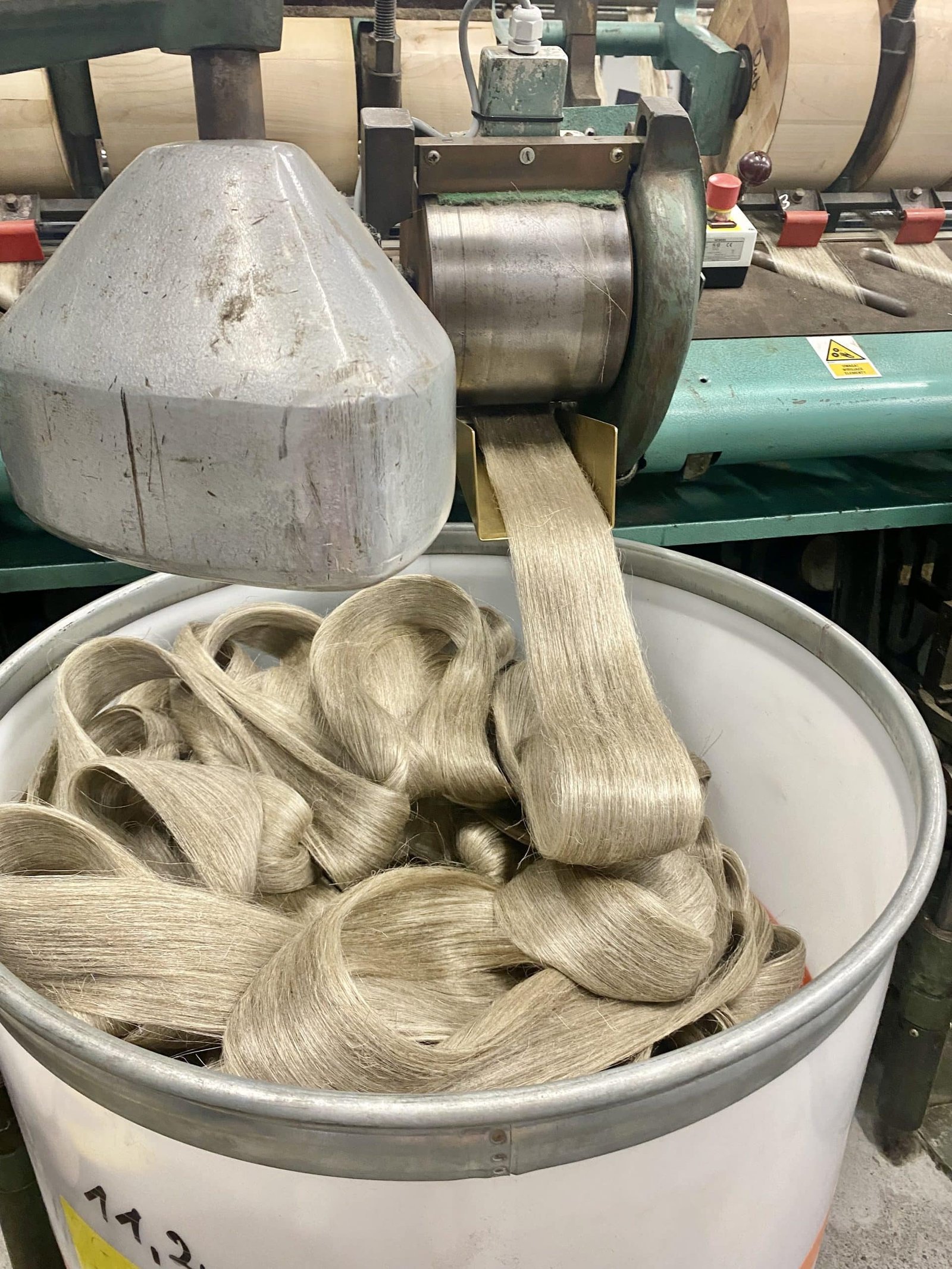For several years at Natissea We are closely monitoring the progress of the French organic hemp and linen sectors because our main goal is to offer the most ecological, local and healthy yarn possible. If knitting and DIY have made a strong comeback in recent years, it is also due to the growing need to source materials ourselves and to know exactly what goes into our products, cosmetics and clothing!
Four years ago, I attended this interprofessional meeting organized by the organic flax and hemp association in Normandy. At the time, I was certain I would find French hemp and flax suppliers there! I was stunned to learn that these sectors had completely disappeared in the 1980s with the advent of synthetic fibers. Even though France remained one of the largest flax producers, the know-how for the processing stages had been completely lost, and we were then unable to spin these fibers in France.
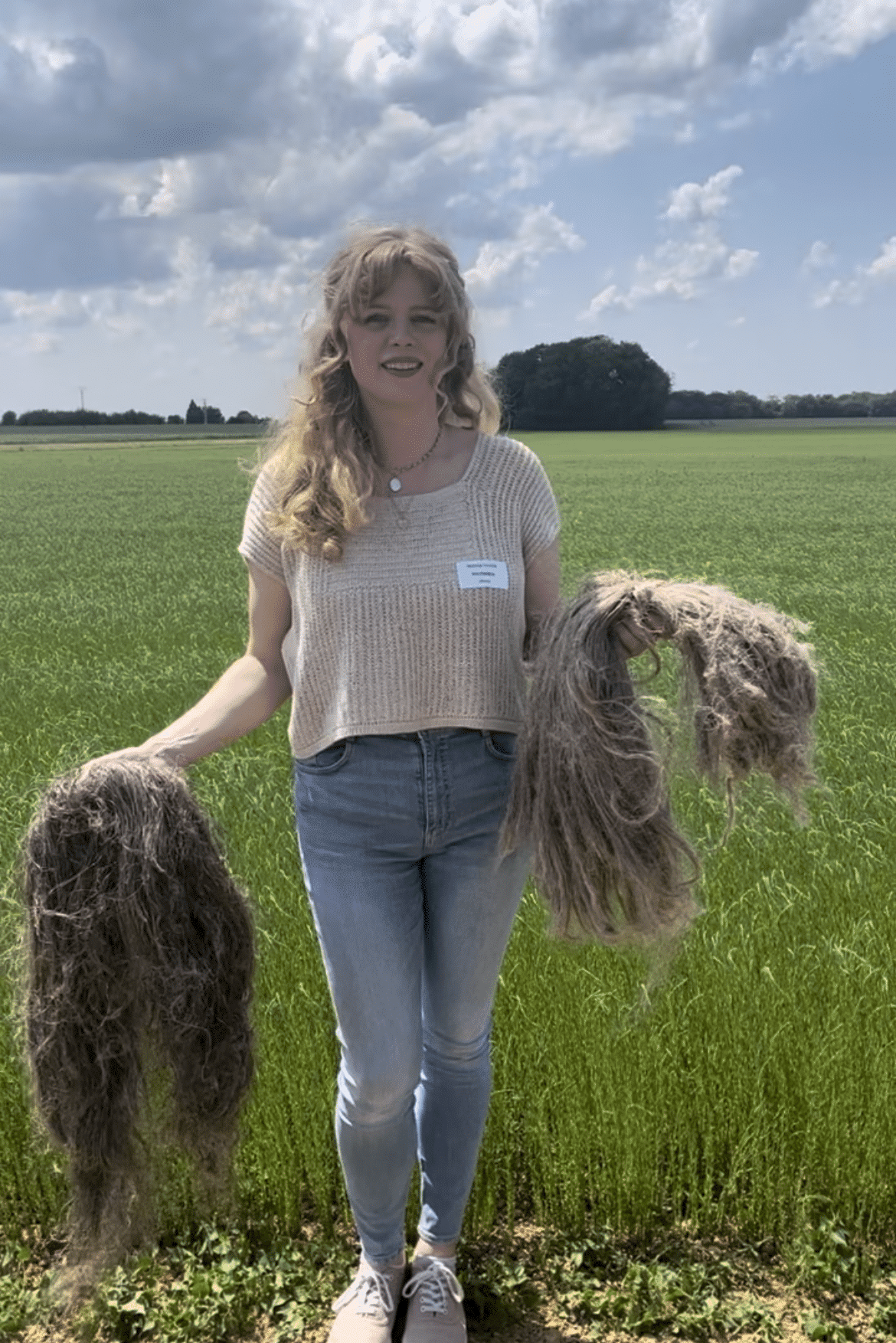
Flax production in France was well established, but the harvests were then sent to China or, at best, to Eastern European countries to be processed (scutched and spun) before returning to France. An ecological aberration like so many others in modern industry. Hemp for textile use, for its part, was no longer even cultivated; there were only a few isolated trials carried out by students in agricultural high schools. Reindustrialization was possible, but it would take time because the machines were very expensive and subsidies for this market were nonexistent. I left Normandy with little hope and a feeling of injustice. How could the state finance polluting fiber industries and lobbies and leave the last producers and spinners of flax and hemp alone in the face of such a large-scale relocation project!
I left Normandy with little hope and a sense of injustice. How could the state finance polluting fiber industries and lobbies while leaving the last producers and spinners alone in the face of such a large-scale relocation project?
Matilda
The Organic Flax and Hemp Association
The Organic Linen and Hemp Association was created in June 2013. It is made up of several members such as producers, farmers, processors of organic linen and hemp, entrepreneurs, and even... eco-friendly knitting brands 😉.
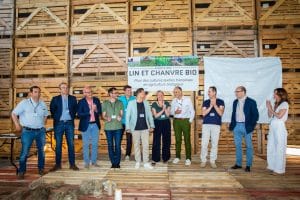
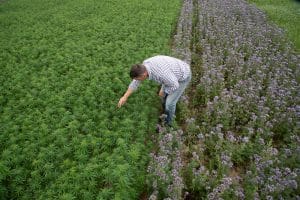
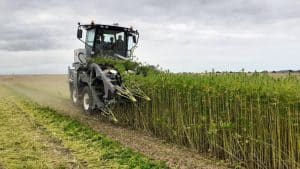
The association's objectives include creating a space for exchanging knowledge and information on the cultivation of flax fiber in organic farming, promoting organic textile flax and hemp throughout the industry, and promoting transparency in prices paid to producers.
This year the event took place in Leudon-en-Brie in Seine-et-Marne, on the farm of one of the members who recently converted to organic farming. Here's a quick update on the progress of these sectors!
After 5 years, French hemp for textile use finally rehabilitated?
The reintegration of the hemp industry was lagging behind flax, which had been cultivated even after the arrival of synthetic fibers. The reason is simple: even though flax and hemp are easy to grow since nothing needs to be added, hemp required an additional step.
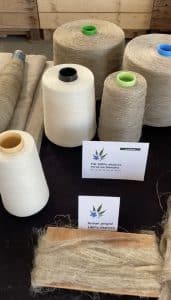
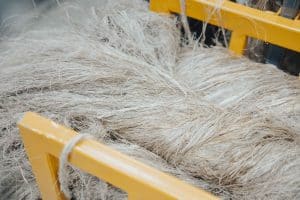
LHemp plants are more difficult to "store" before the scutching stages, which is essential before processing, especially industrially. It was therefore necessary to come together and pool resources between the various players in the sector to be able to invest in specialized machines from China. Several years of testing were then necessary to reintroduce hemp crops for textile use. And the good news this year is that the first harvest of compliant French hemp has just been carried out and it has already gone into processing as I write these lines. I am now in discussions with the supplier to obtain the equipment needed to carry out dyeing and twisting tests,
I just hope the price won't be too high because it is in high demand in the luxury sector!! 2 tons will be produced in early 2024 and you can trust me, Natissea is on the spot!
One of the goals of the Organic Flax and Hemp Association would be to have 1 million hectares of hemp by 2050!
What if hemp and flax could save the planet?
You've probably heard about it, the organic sector has been practically at a standstill since inflation, yet it's one of the most important factors in terms of ecological transition! One of my big discoveries this year is the role of hemp and flax in organic farming. I already knew that hemp was used between two crops to clean and re-nourish the soil and it was during a very interesting conference by Jacques CAPLAT (agronomist and anthropologist) that I learned more. To summarize, agriculture represents 1/3 of climate change according to official figures from the IPCC.
This pollution is largely due to synthetic nitrogen fertilizers, which release enormous amounts of greenhouse gases. Added to this are forecasts of irregular rainfall cycles, concentrated in the winter season and becoming scarce in the summer when crops need it most. Agriculture must reinvent itself, and this is not just about removing chemicals but about reviewing the model as a whole. The primary place to store water is the soil itself, but if it is depleted by monocultures and fertilizers, the water that falls is not absorbed and there is no natural reserve.
The agronomist then recalls the virtues of flax and hemp crops to replenish the soil, these plants reinject nitrogen naturally thanks to their very long roots and even points to his sector as an example. Indeed, in recent years, France has succeeded in reconstituting the flax and hemp sectors, which is an achievement since they are controllable at the level of local actors, that is to say, they are autonomous! I invite you to listen to him
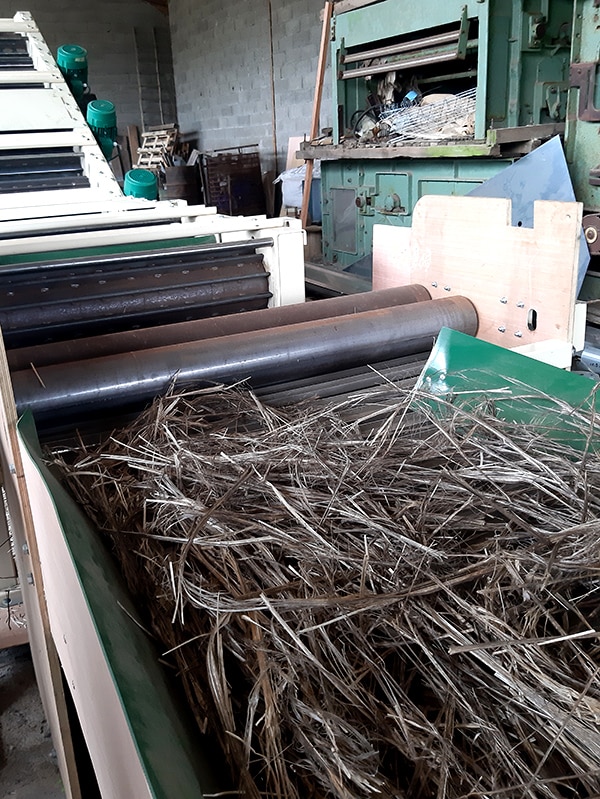
So, what about linen?
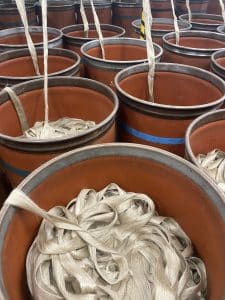
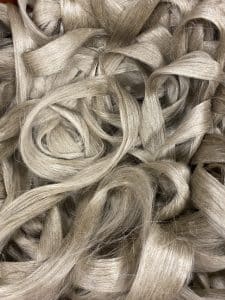
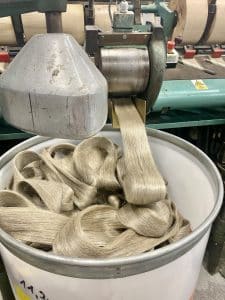
Since last year, Natissea has been offering you a French linen yarn, Linaé. This yarn comes from the Safilin company, the last French spinning mill to have resisted relocation and the only one to spin linen in Europe and then in France since 2022. Even if the conversion to organic linen has been at a standstill since the war in Ukraine and inflation,
Mr. GUILLAUME, Director of Safilin, reminds us of the importance of supporting initiatives like his in times of crisis so that all the efforts made so far are not reduced to nothing and that French linen and hemp are still present when the crisis is over. For my part, I have worked on developing a 100% French linen thread, the price of the material is higher but I will soon conduct a survey to see if you are following me!
Sources
Association website:https://linetchanvrebio.org/
